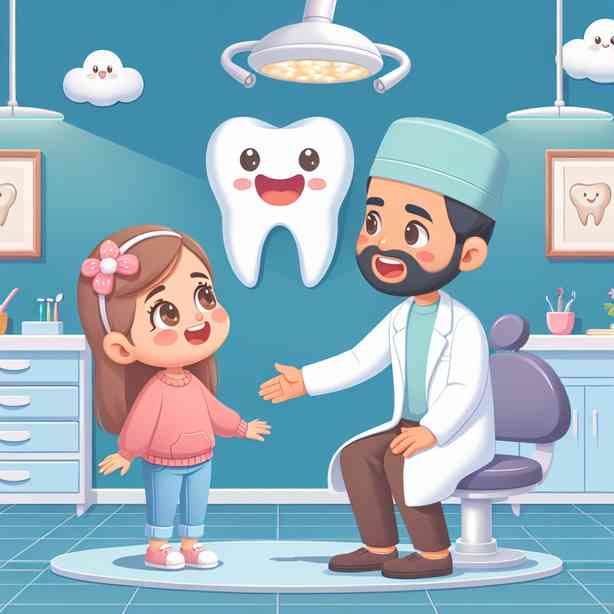
Dental visits often evoke fear and anxiety in many individuals, yet understanding the benefits and addressing common concerns can redefine this experience. A visit to the dentist should not be a source of dread; on the contrary, it should be viewed as an essential step in maintaining one’s overall health. By exploring the importance of dental visits, their role in preventive care, and how to manage anxiety surrounding these appointments, we can create a more positive perspective on oral health care.
First and foremost, regular dental visits play a crucial role in preventive care. Most people are aware that brushing and flossing are vital to maintaining good oral hygiene, but these practices alone cannot replace professional cleanings and examinations. The American Dental Association recommends visiting the dentist at least twice a year. These routine check-ups are pivotal not only for the health of your teeth but also for your gums and overall well-being. During these visits, dental professionals can detect early signs of tooth decay, gum disease, and other oral health issues before they develop into more significant problems that may require extensive treatment.
Moreover, routine cleanings remove plaque and tartar that cannot be eliminated through standard brushing. Plaque is a soft film of bacteria that constantly forms on our teeth. If not removed, it can harden into tartar, which can lead to cavities and periodontal disease. By ensuring that these harmful substances are regularly cleared away, dental professionals help protect you from pain, infection, and costly procedures down the line. This highlights that a dental visit is an investment in one’s long-term health rather than simply a necessary chore.
In addition to preventive care, regular dental visits have been linked to the detection of systemic diseases. Your mouth is a window to the rest of your body, and dentists can often spot signs of conditions such as diabetes, heart disease, and even certain types of cancer during routine examinations. Identifying these health issues early can lead to more effective treatment and better overall outcomes for patients. This connection between oral health and general health underscores the need to prioritize dental visits, as they contribute not only to the health of the mouth but to the body as a whole.
While understanding the benefits may help encourage visits, many individuals still feel anxious about dental appointments. Dental anxiety is common and can stem from various sources, including fear of pain, negative past experiences, or even the sounds and smells associated with a dental office. However, there are ways to manage and mitigate this anxiety.
One effective strategy is to communicate openly with your dentist. Discuss any concerns or fears you may have, so they can address them directly. A compassionate dentist will take your feelings into account and may suggest strategies or alternatives to help you feel more comfortable. Additionally, seeking a dentist who specializes in treating anxious patients can make a significant difference. These professionals often employ techniques specifically designed to ease anxiety, such as sedation dentistry, where medications are used to help you relax during treatment.
Another approach to reducing anxiety involves creating a positive mindset about dental visits. Rather than viewing them as a daunting obligation, framing them as an opportunity for self-care can help change your perspective. Remind yourself that these appointments are about maintaining health and preventing pain in the future. You might also consider bringing a friend or family member along for support. Their presence can provide comfort and reassurance.
Establishing a good rapport with your dental team can also contribute to a more relaxed experience. Familiarize yourself with the staff and the office environment, which can help ease anxiety. Some people find it helpful to arrive early, allowing them to acclimate to the setting before their appointment. Engaging in relaxation techniques such as deep breathing exercises, visualization, or even listening to music can also be effective in managing anxiety levels.
Furthermore, being proactive about your oral health in between dental visits can empower you and reduce fear associated with the dentist. Practicing good oral hygiene at home by brushing twice daily, flossing regularly, and utilizing mouthwash can significantly impact your oral health. This proactive approach not only helps prevent potential issues but also fosters a sense of control over your health, making the prospect of seeing the dentist less intimidating.
Ultimately, it is essential to remember the larger picture of health and wellness. Regular dental visits are not merely about maintaining a bright smile; they are integral to overall health. The links between oral health and systemic health are profound and should not be overlooked. By prioritizing dental visits, you are investing in your health and taking proactive steps to secure a better quality of life.
In conclusion, dental visits should not evoke fear but rather serve as an opportunity for self-care, preventive health, and wellbeing. By understanding their importance, addressing concerns related to anxiety, and fostering a positive attitude toward dental care, individuals can transform their experiences into something more manageable and even enjoyable. Whether you are due for a routine cleaning or haven’t seen a dentist in a while, remember that the benefits of visiting a dental professional far outweigh the temporary discomfort one might feel. Your smile and your health deserve it, and with each visit, you are one step closer to a healthy and confident you.


